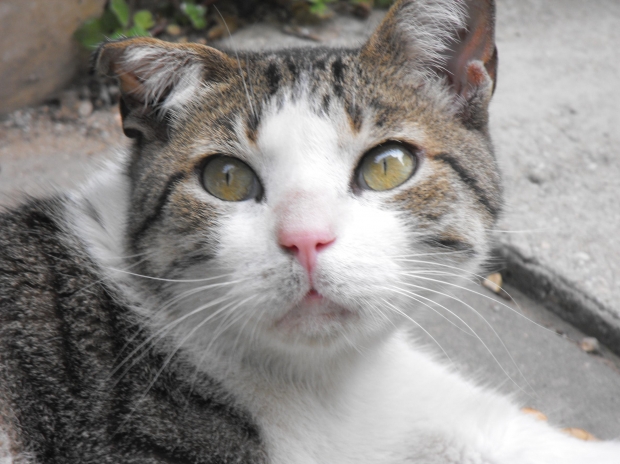 Parasites often go unnoticed because they are “silent”. Intestinal parasites that are more common have adapted so well to their hosts (your cat), that they are living in balance and cause no observational health issues. This can always change though, because when the parasites become too numerous the pet’s health is affected. The best approach, because of their silent nature, is to try to keep pets completely free of them before the balance becomes disturbed.
Parasites often go unnoticed because they are “silent”. Intestinal parasites that are more common have adapted so well to their hosts (your cat), that they are living in balance and cause no observational health issues. This can always change though, because when the parasites become too numerous the pet’s health is affected. The best approach, because of their silent nature, is to try to keep pets completely free of them before the balance becomes disturbed.
How Veterinarians Check for Worms
If the parasites are found in large numbers in your cat, your vet may be able to see them in a fresh suspension (“smears”) of the feces. These “smears” can be evaluated by being placed on a slide under a microscope with some saline. This is the quickest screening test a veterinarian can do.
With fresh direct suspensions, over half the pets that carry parasites can be missed. Although they can be quite good at detecting giardia and other protozoa that live in vast numbers within the intestine, they often miss hookworms, roundworms and whipworms. These parasites are attached to your cat’s intestinal lining. The vet is looking for their eggs, not the worms, and those eggs are only passed in numbers reflecting the parasite burden and even then, only sporadically. Direct suspension are best used to pass the time with clients whilst a fecal specimen floatation runs of their laboratory which usually takes about 5 to 10 minutes. Even if the smear comes up positive for one parasite, there may be other found in the floatation. It is quite common in pets for multiple infections with several species of parasite to occur.
There are a few parasites, such as strongyloides, that do not float to the top of the liquids used to concentrate them in the fecal specimen floatation method. Most of these are picked up on the direct suspension, but those that remain can be found on the bottom of the floatation tube.
Tapeworm eggs and segments are rarely found mixed with the feces. They pass out of your pet on the surface of the feces. So do not be surprised if there is not any detected by your vet. The suspicious objects need to be brought in. Always place the suspected parasite in a baggie with a moist paper towel. It can be harder to identify them if they come shriveled and dry.
Always wear gloves when you collect fecal specimens from your cat. Be sure to keep the stool specimen chilled by using an ice pack if you cannot get it to your veterinarian quickly. This is because some parasite eggs hatch quickly and the resulting larva can be hard to find.
Are These Parasites A Serious Health Problem For My Cat?
Some of the common intestinal parasites of cats do not cause health issues. Others such as roundworms and tapeworms, absorb nutrients through their skin (cuticle) and do not normally injure the pet’s intestine. However, others, such as hookworms, chew and erod the lining of your pet’s intestine. Strongyloides cause inflammation by tunneling through the lining. Single-celled Giardia blocks nutrient absorption and is thought to produce a mild toxin while coccidia enter and demolish the cells of the finger-like projections (villi) that allow nutrient absorptions from your pet’s intestine.
Your pet has great potential to brush off the effects of a few parasite organisms, but when the numbers of these parasites increases, your pet’s health will suffer. The result is diarrhea which gives less time for food absorption. The appetite lessens and causes vomiting as a result of intestinal irritation. The burrowing parasites cause blood loss and anemia.
Kittens
The affects of intestinal parasites are always worse in younger animals. The younger they are when they get attacked, the worse the problem will be. This is because growing kittens have much higher nutrient needs and their inflamed intestines cannot absorb nutrients. A few nematodes, such as hookworms and roundworms do not pass eggs immediately. So just because a kitten’s fecal exam was negative does not guarantee it is free of worms. Kittens with parasite problems tend to suffer from multiple problems, like rhinotracheitis (Herpes 1) virus, fleas, ear mites and nutritional deprivation. These co-existing diseases can weaken their ability to deal with intestinal parasites.
Adult Cats
Adult cats are far more resistant to most intestinal parasites. Provided their natural tendency to cleanliness as well as private space they are going to clear themselves of intestinal parasites if given half a chance. Unlike dogs though, cats are more likely to continue shedding parasite eggs when they remain infected.
However, cats too can become seriously ill if their environment is highly contaminated or their resistance is weakened. Much of age-related immunity is acquired with prior exposure to these common parasites. So cats that have never been exposed before may react as ill as kittens if they are suddenly confined to shelter and group-home situations where numerous parasite eggs are found.
Many of these infections are considered to be “compensated”, which means the cat has adjusted to the presence of the parasite with a natural immunity that keeps parasite numbers in check and shows no marked signs of illness. However, the general un-thrifty nature of the cat will probably be noticeable to your veterinarian. This is why is important to have your regularly checked and screened for such parasites and diseases. Click the “Contact Us” button below for more information or to get your cat screened today.















